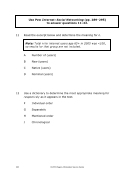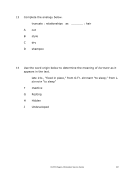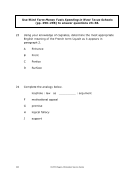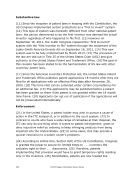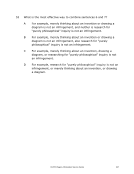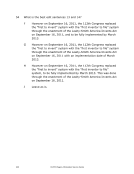levels of cognitive processing into deeper, more complex thinking. In any
unit of study, therefore, educators are encouraged to integrate the literacy
strands so that students must synthesize skills and concepts from each to
gain meaning and insight.
The study of themes is a naturally recurring element within the TEKS;
students are expected to make thematic connections within and between the
many different genres:
(2) Reading/Comprehension of Literary Text/Theme and Genre. Students
analyze, make inferences and draw conclusions about theme and genre in
different cultural, historical, and contemporary contexts and provide
evidence from the text to support their understanding. Students are
expected to:
(A) analyze how the genre of texts with similar themes shapes
meaning
This component of the STELLAR series is based on the design requirements
for the English III College and Career Readiness Exam, the CCRS, and the
TEKS; therefore, it requires students to demonstrate understanding of
theme through themed passages, complex reasoning, crossover
multiple-choice and short-answer questions for reading, and thematically
linked writing tasks.
Assessments
The assessments contained in STELLAR are custom designed for Texas
students. The assessments measure a student’s level of performance on
clearly defined standards, objectives, and skills. Student scores will be based
on test questions that have been developed and aligned to the most current
version of the ELAR TEKS and the Reading/Language Arts and
Cross-Disciplinary CCRS.
The chosen selections meet the criteria for high-interest, 21st-century
context and age-appropriate content. The Lexile score, which considers word
frequency and sentence length, of each selection was used to determine
ability-level applicability. Selections were then linked by theme, which
allowed assessment questions to be written to a higher cognitive level for an


























































































































































































































































































